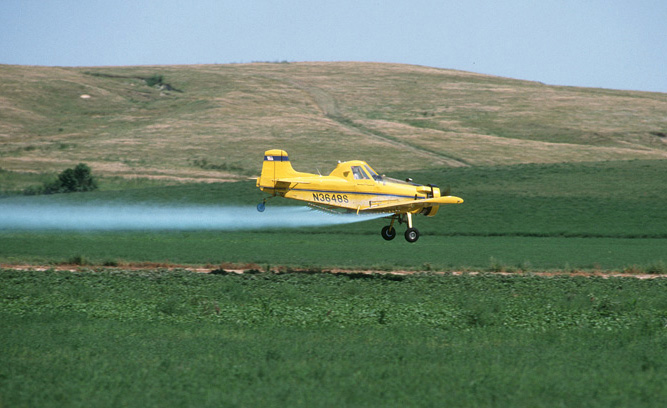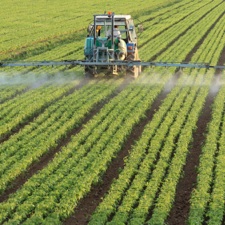Living in Cancerville

I grew up in the country of a small farming community surrounded by cornfields and farmer tans. It's called the American heartland, but as cancer rates in my small town skyrocket, it begs the question of whether exposure to farm pesticides could be killing my friends and family.
When you grow up in a small town, everyone knows everyone else. You start hearing rumors of friends and friends of friends being diagnosed with various types of cancer, but you shrug it off. Cancer is common everywhere, right? There is bound to be someone that you know that is diagnosed with it. My first experience came when I was only six, when a friend of my mom's died of breast cancer.
We mourned, but we moved on. My uncle was the next to fall from lung cancer a few years later, but he was smoker, so that's not surprising. Sure, he was only in his 50s and hadn't smoked in a decade, but stranger things have happened, right? One by one people were diagnosed and fought off the deadly disease. In my small high school of 400 students, we had out first fatality my sophomore year. His name was Andrew and he was my friend.

The entire school mourned. The entire town mourned Andrew never stopped fighting, and I still think about him. He was always cheerful even when the pain was too much for most others. It was then that I began to suspect something besides happenstance was causing the rising tide of cancer in my small little town. One day, I looked up and noticed one of the local crop dusters spraying the nearby fields as well as a large chunk of my property. How much of that pesticide and fertilizer stayed in the fields?
A significant portion of our area was serviced by an underwater aquifer. It's not uncommon for country dwellers to dig wells to tap into that aquifer and many streams are fed by it. Could it be that the pesticides and fertilizers were running off the fields and into the groundwater? The Environmental Protection Agency has strict rules about pesticides in streams and rivers, but they are an underfunded organization.
Since high school, I have maintained contact with many of my friends who still live in the area and guess what? Several of them were diagnosed with various cancers while in their 20s and early 30s. The cancer rates are off the charts, but no one seems to be listening.
According to the United States Geological Survey, farmers and homeowners apply more than one billion pounds of pesticides every year. They studied 51 major hydrologic systems throughout the U.S. and found 50 percent of the shallow wells had at least traces of pesticide.
The New York Times reported that farmers where known to have higher rates of several forms of cancer because of pesticide and fertilizer exposure in the fiends, drinking water and more. They had increased rates of Hodgkin's disease, multiple myeloma, leukemia, melanoma and cancers of the lip, stomach and prostate.
The United States is in the midst of a cancer epidemic and many of the carcinogens are connected to the environment. Polluted water supplies, polluted ground and air are common and accepted by society. People have come to live with and expect cancer. They continue to eat the refined and processed foods, smoke cigarettes and drink water that's teeming with pesticide, fertilizer, medications and industrial pollutants.
Instead of dealing with the problem, we simply spend money on new medicines and new treatments for a disease that we are creating. Meanwhile, in a small little farming town, a young man dies of cancer, leaving behind a child. A mother worries about her son before he goes into surgery to remove a tumor from his brain.
I have watched too many of my friends and relatives die long before their time or go through months or years of suffering and not knowing if they will make it another year. When I'm home, I never drink the water. I'm not afraid of it, I'm angry at it. I can still see and hear the crop dusters overhead pouring their poison onto the fields. The world needs corn. The world needs beans. Apparently, it doesn't need a 16-year-old boy from a nowhere town.
Photo courtesy of A Crop Duster Tour of the Midwest
Inset photo courtesy of Scientific American
1 comments